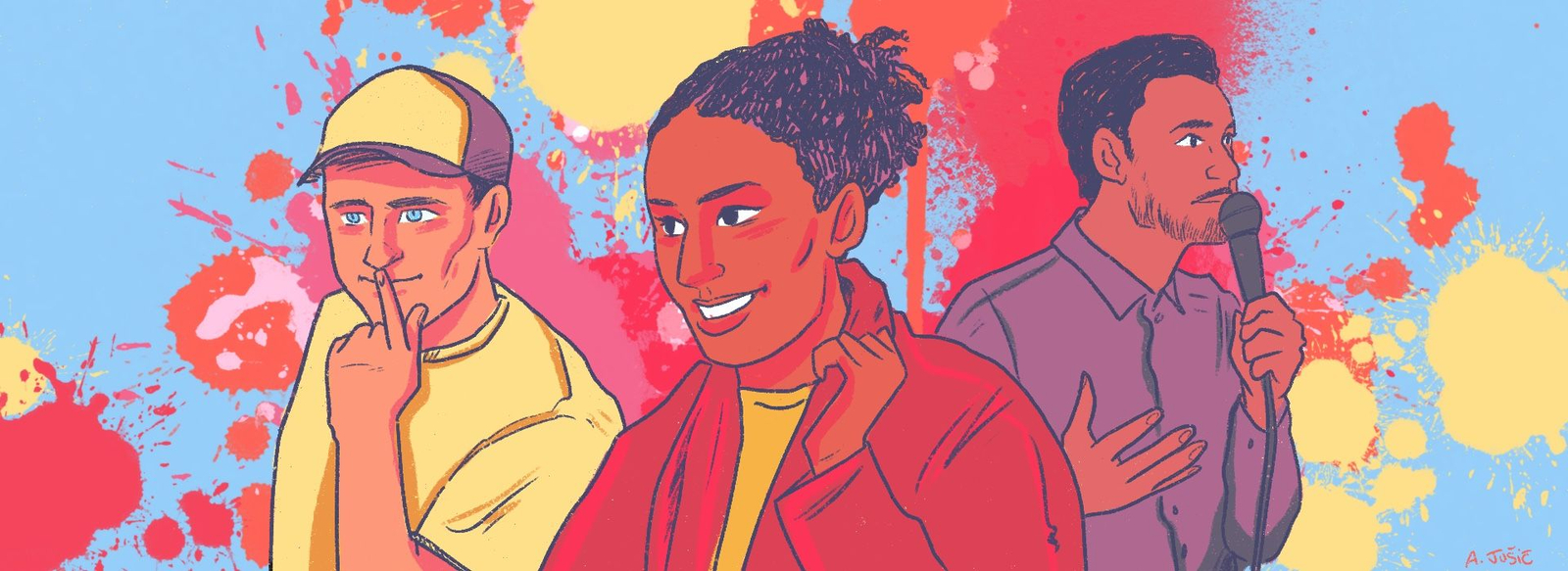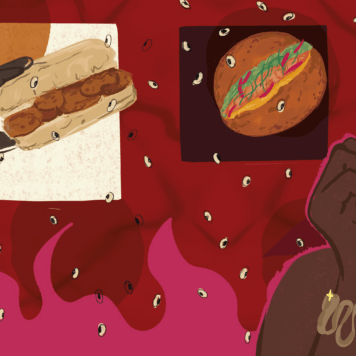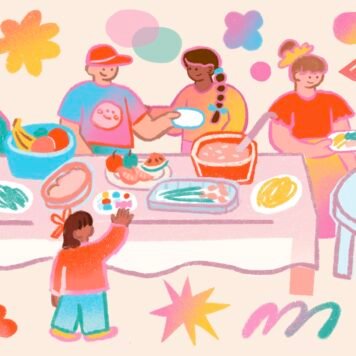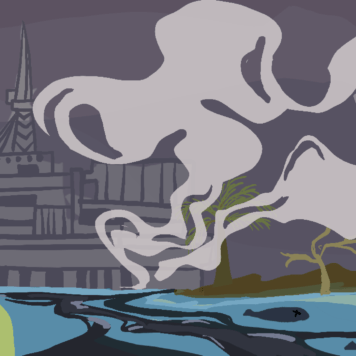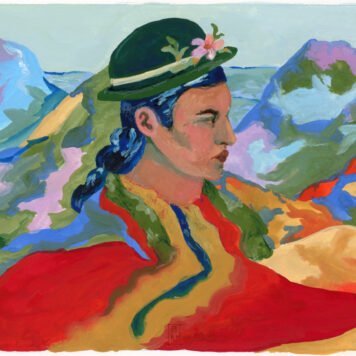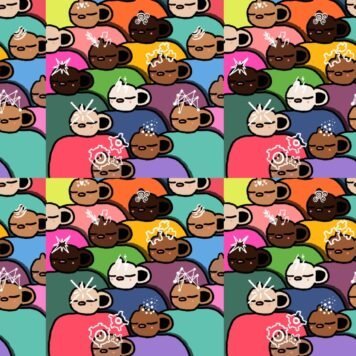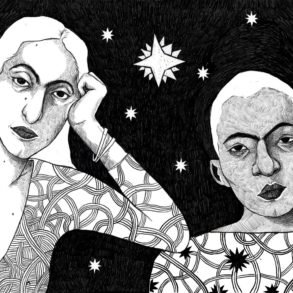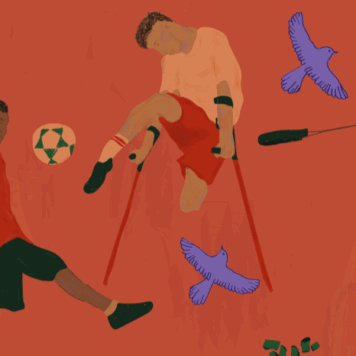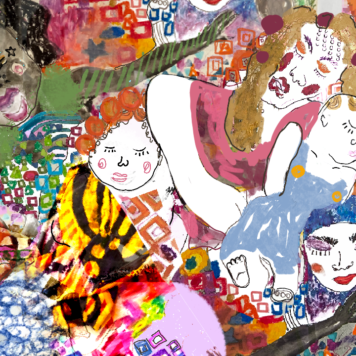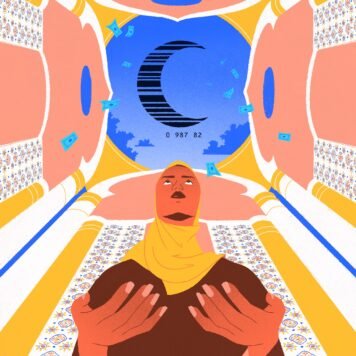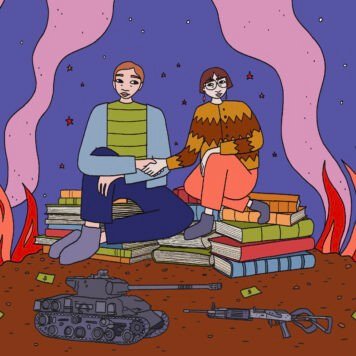No Direction Home is a comedy collective made up of aspiring stand-ups from refugee and migrant backgrounds. Created by Counterpoints Arts, Camden People’s Theatre and Tom Parry in 2018, the initiative runs free workshops and stand-up gigs for comics who are injecting humour into tired stereotypes of displacement. This September, the group will be taking their comedy online as part of a two week programme curated by Journey’s Festival International. Ahead of the performance we had the pleasure of meeting some of the performers and organisers, including the two Toms at the helm of the organising –Tom Green from Counterpoints Arts and comedian Tom Parry. In a conversation weaving between laughter and sobriety, we found out why No Direction Home is one show you don’t want to miss.
As with all things 2020, the group have had to adapt and change the format of the show to now accommodate with online viewing. The show will be live-streamed in a new live comedy set up – a format we were initially apprehensive of. How would the show work without audience laughter? From a performer’s perspective, we imagined a reliance on audience atmosphere, and asked how the stand-ups were adapting to this new normal. As it turns out, this particular barrier seems to have been relatively easy to surmount. “We’ve been amazed at how successful it’s been,” says Parry, as he notes that participation is at an all-time high.
When it comes to the method of laughter, each audience member is visible, but muted. In lieu of the scattered laughs and claps of amusement, the audience is encouraged to wave at the camera in appreciation, causing what Parry describes as “a Mexican wave” rippling across the screen at each joke. While the implicit rapport of shared experience between on-stage performer and their live audience is lost, Parry says a new intimacy is born from the online format. The audience members are inviting the performers into their homes, no longer hidden by the darkness of a comedy venue – ”what could be more intimate than that?”. Green and Parry are vocal in their appreciation about this new audience format. In a Gogglebox meets Live at the Apollo format, the comics delight in the humorous contrast of one couple sitting down and enjoying a 3-course meal, whilst in a different square a man stands doing the ironing. The online experience offers a truly personal insight into the audience, turning the mundane into the wonderful and adding an amazing new layer to your average comedy show.
On the other hand, we asked, were the comics missing the adrenaline rush of being on-stage? The Toms assured us that this wasn’t the case. Each performer still had their platform, still had the time of the audience – just with the removal of what Parry calls the “sweaty-palm element.” The performers were also afforded more autonomy, being in the comfort of their own homes and talking from within their own environments. For first-time performers, this could be really liberating.
“Performing makes me feel empowered”, says Selam Mengistu, one of the performers. “Public speaking is something I’ve struggled with in the past so to be able to conquer my fears and enjoy it at the same time is something I never thought I would be able to do! I love the feeling afterwards and want to do it all over again.”
In terms of what the audience can expect from the content of the show, the organisers have summed this up in three words; “Laughter, surprise, (more) laughter”. No show is the same, and the beauty of stand up is that it allows for last minute changes, and the content to change on the day with even the organisers sometimes having no idea what the comics are going to perform. Given the various backgrounds of the performers, there might be some implicit assumption that the content will be about the so-called ‘refugee experience’. However, this is not the case. “There is no pressure or expectation on performers to talk about any particular subject”, says Green, “but because they are a very diverse group, the gigs do raise loads of interesting social and political issues. Just performing, giving their point of view to an audience, is a political act – whatever subject matter they choose.” Indeed, the sets are as impromptu as they are personal. From stories of childhood and bad relationships to the realities of lockdown life, Green describes the beauty of stand-up as being that it is “both highly individual and universal”.
“Each performer creates their own content and has control over every single moment of their set. You never know what will resonate with someone, what will make them laugh”, says Tom Green. “People might have had very different life experiences but share the exact same feeling about their first experience dating, or being patronised by a teacher. Making those connections through shared laughter is just fantastic.”

Majid Adin, Iranian artist and famous for his creation of Elton John’s Rocket Man animation, often has people coming up to him and telling him his work moved them to the point of tears. He tells Parry that he’s used to making people cry with his depictions of the refugee journey; now, he is ready to make people laugh. “Nobody expected me to become a stand-up comedian. I never expected it! But it has been an amazing experience,” Majid says.
From a political perspective, and in light of the increasingly hostile policies and language being directed at migrants, No Direction Home is more important than ever. Green notes that “comedy has always been a tool for change. Jokes challenge the established way of thinking about things, whether that’s personal or societal, and that’s why comedy writers and performers have always been feared by those in power.” The troupe represents part of a cultural movement which is beginning to “shift the way we talk, think and feel about migration and displacement in the UK.”
When all roads lead to staying at home this Autumn, No Direction Home promises a night of laughter, waving and a truly unique audience experience that we’re certainly not going to miss.
Find out more about the event HERE
Buy tickets HERE


